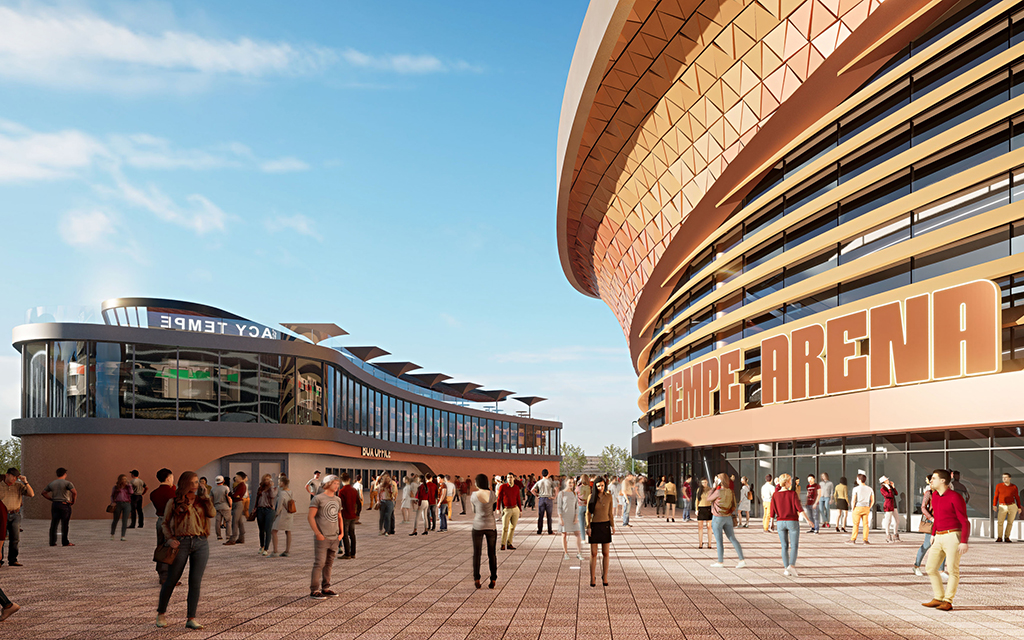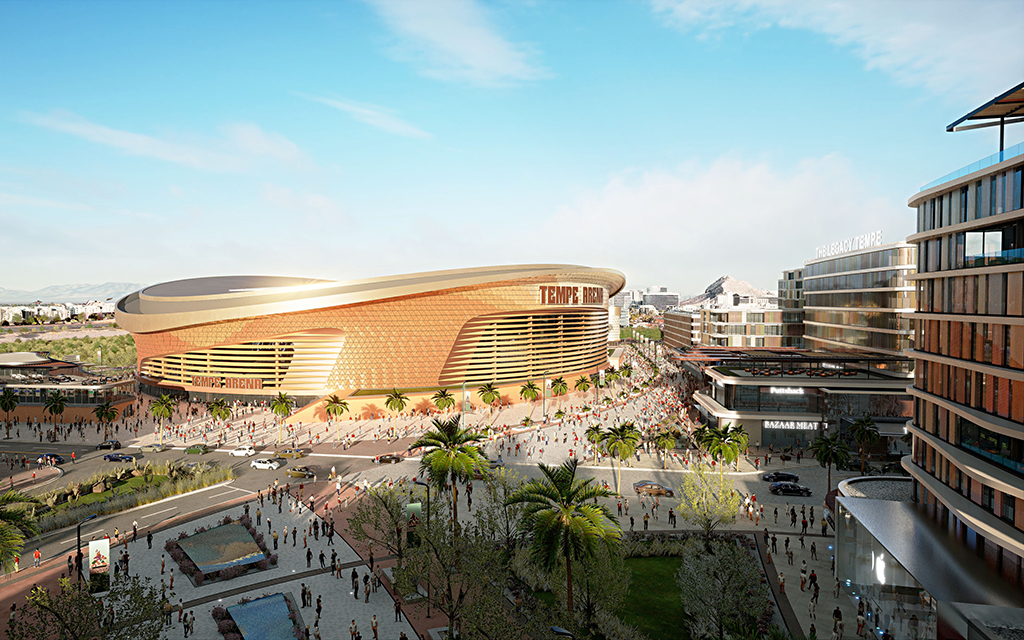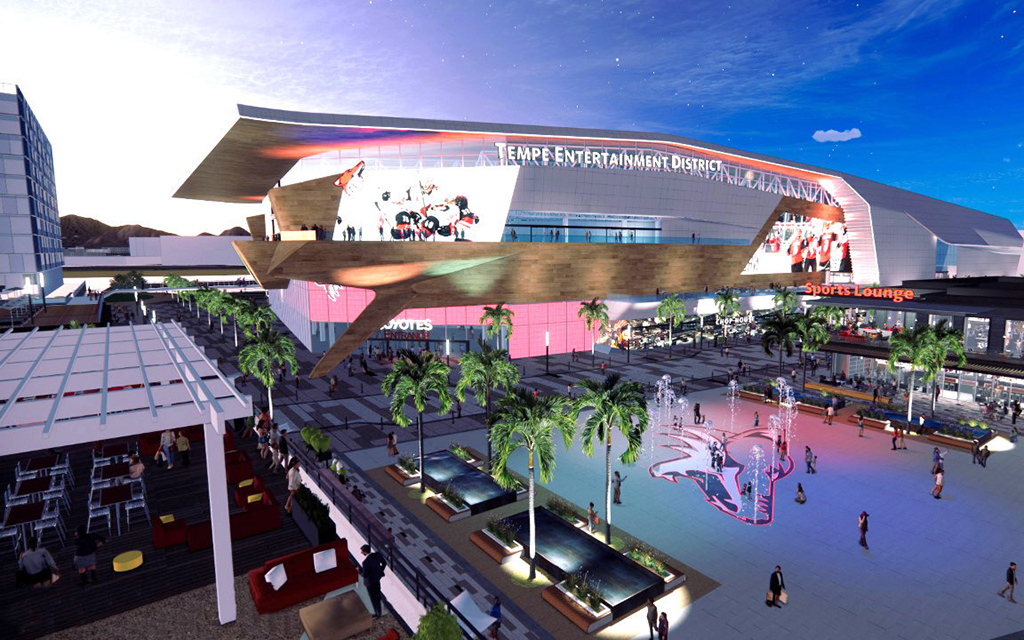TEMPE – As voters filed their registration forms for May’s vote on the building of the Arizona Coyotes Tempe entertainment district, questions still loom over the project’s potential benefits and costs to the city.
On Monday, two studies were released, one conducted by the Grand Canyon Institute (GCI) and another from ASU’s Seidman Research Institute at W.P. Carey School of Business, that provide different outlooks based on their findings.
GCI’s study examined the effects of the new venue and cited a strain the market could endure if the arena is built. Currently, the Phoenix metropolitan area is home to two large arenas, Footprint Center and Gila River Arena. Building a third venue is likely to pit the venues against each other for a limited number of events and give all of them less leverage in negotiations for events and shows, the study said.
It also noted that the “assumption of 45 events plus hockey games for the arena may be optimistic,” and suggests that even if the number is achieved, the loss in events from the Footprint Center and Gila River Arena could negate any positive outcomes from the new venue.
Meanwhile, an independent review from the Seidman Research Institute concluded that the Tempe Entertainment District can “generate hundreds of millions of dollars for the City of Tempe.”
The Seidman study emphasizes that construction of the arena would be privately funded. The review also concluded Hunden Strategic Partners and Conventions, Sports & Leisure International (CSL) actually “underestimated the revenues generated” by the project to the city.
If the district does not use any tax money, it would be Arizona’s first privately funded arena in Arizona. Using private capital would also prevent surcharges for residents who do not visit any of the amenities the district provides for the city, according to the Seidman review.
“A review of the Development and Disposition Draft Agreement between the City of Tempe and Bluebird Development (on behalf of the Arizona Coyotes) suggests that proposed project financing for the new NHL arena will be unlike prior professional sports facilities built in the Valley,” the Seidman report said. “In particular, the Tempe arena and related development requires no new tax revenue streams and no general fund obligations for Tempe taxpayers.”
However, GCI’s review concluded that while Tempe would not lose money from its general fund if the project goes forward, the development would limit the growth of the fund, according to the report.

The Arizona Coyotes’ new entertainment district in Tempe will feature an arena, hotels, restaurants, stores, a sports lounge and a theater. (Photo courtesy of the Arizona Coyotes)
“For every $2.70 diverted from the city to the community facilities district (CFD), the city only receives $1 in new revenue as a consequence of new spending drawn by the arena and music venue and its recirculation within Tempe,” Grand Canyon Institute stated.
On Saturday, Tempe 1st – an organization that opposes the Tempe Entertainment District because it doesn’t want “new handouts for billionaires,” according to its website – posted a statement to social media claiming the approval of propositions 301, 302 and 303 would allow Tempe to sell Coyotes owner Alex Meruelo the city land for $25 per acre.
However, the post was taken down after that notion was dispelled. The selling price is $25 per square foot and would result in a $50.37 million price tag spread across four phases, according to the Development and Disposition Agreement.
Monday marked the deadline to register for the election on May 16, and mail-in ballots are expected to be sent Wednesday. Any voter who fills out a mail-in ballot must return it by May 9 to be accounted for in the election. Ballots can also be returned at drop boxes or voting locations until the evening of May 16.



